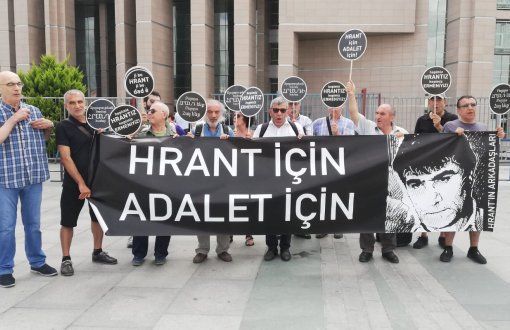PEN Vice-President Eugene Shoulgin and authors Mehmet Altan and Bejan Matur discussed about violation of freedom of expression, democratization process in Turkey and whether taboos have changed during 12-year-long AKP (Justice and Development Party) power. The title of the meeting was “Freedom of Expression in the new Turkey: public debate and access to information in public sphere”.
Odlender: We support Turkey’s EU membership
Having initially delivered a speech in the panel, Ambassador Jens Odlender stated that there are several ongoing debates in EU and a fatigue resulted from extension of EU, adding, they organized the meeting for they are still supporting the EU membership of Turkey.
Altan: Cost of liberally speaking is higher now
“Turkey is land of taboos. A potential that can damage the taboos hasn’t been internalized yet. Turkey didn’t experience the things that other EU countries had.
“We never had a capitalist class and proletariat, so we couldn’t industrialize. Instead of that, there were the palace and the dependent citizens and this distinction resulted in state-public dichotomy after the foundation of the republic.
“The government adopted the Kemalist view. Those who couldn’t agree with this view, approved the religion more. The state-centered sovereignty, which has existed until recently, slid to those who didn’t agree with Kemalism. In earlier time, we used to face taboos of military, now we face taboos of politician who pursue policy over religious abuse.
“There are 57 Islamic countries in the world. Population of Muslims constitutes one fourth of the world. However, the contribution of these 57 countries to production is 11 per cent. When AKP came to power, it was thought that AKP, due to its efforts to democratize Turkey, would be a model of democracy for other 56 countries.
“Therefore, focuses that produced violence appeared and attempts for EU were taken, but this system couldn’t be transformed in a radical way. After 2012, AKP and its chairman thought that they could form their structure in favor of themselves through the “sole leaders” strategy. Focuses producing violence were dissolved, but AKP culture didn’t disappear. The form of pressure changed. Freedom of speech started to be suppressed. Cost of liberally speaking became higher and possibilities to divulge this situation is has been restricted.
Matur: Class of interest around the power doesn’t change
“From an external perspective, one the first adjectives of Turkey is dynamic. There is a big dynamism and we witness it in the politics. Turkey is the country of big changes, transformation and hopes. However, when we look at the final point, only a few things can change and this resulted a big disappointment.
“I define myself as a democrat. My friends and I wrote lot of thing for the sake of Turkey’s democratization. Our primary aim was to change militarism and elite and narrow-minded Kemalism and we hoped that AKP would change these. However, understating of power and class of interest around it doesn’t change in Turkey. Only thing that changes is individuals in political positions. Kurd, Armenian, and women issues are still taboo subjects.
“And media is no more fourth power. We have social media today instead of that and the political culture became lumpen. Politics in the past was strict and authoritarian but its language was sophisticated, but now every part of politics became lumpen.”
The discussion ended after question-answer part. (EA/MUY/BM)
* Click here to read the article in Turkish.










.jpg)
.jpg)